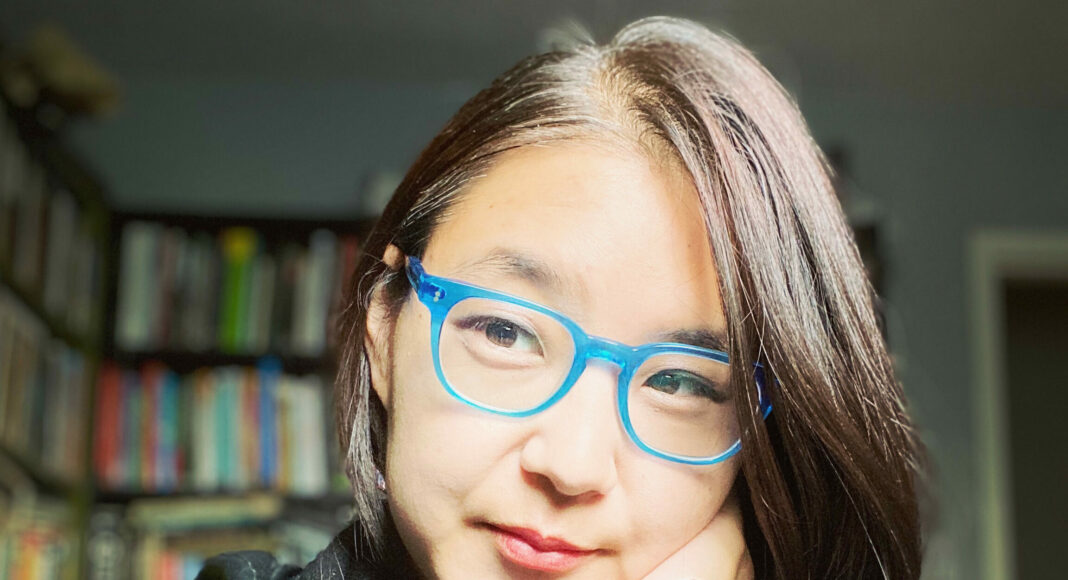Writer, teacher and shamanic healer Janice Lee works in the realm of paradox.
In her newest book Separation Anxiety, released on August 2nd by Clash Books, the poet aims to “de-center the human, which,” she says, “means de-centering me.”
At first glance, this seems almost antithetical to the practice of contemporary poetry, or at least the traditional narrative voice of English-language literature. But Separation Anxiety works to unravel the idea of the “individual” through the poems’ relationships to animals and plants. Facing the fears around her first dog Benny’s then-impending death, Lee explores the boundaries (and lack thereof) between life and death, language and species.
After the release of her 2021 experimental novel Imagine a Death, Lee desired a freer use of form than straightforward narrative.
“I felt exhausted by the sentences and the intensity of that prose, so it was a way for me to keep thinking and playing with language, in a more fragmented and less committed way.”
In a recent essay for literary publication Catapult on colonialism and the English sentence, Lee argues Western grammar’s subject-first structure (“I think, therefore I am”) shapes a sense of individualism not necessarily seen in other language families. The roots of Lee’s spiritual and healing practice—which include Zen Buddhism, Korean shamanic faith (Muism), ancestral healing and Q’ero, a medicinal tradition indigenous to Peru—all emphasize the inherent interconnectedness of all beings. Naturally, her creative work follows the same path.
Separation Anxiety begins with a glossary of four Korean words and their English translations: 귀 ear, 귀신 ghost, 눈 eye and 눈치 intuition/tact/awareness. The words play on each other sonically: “ki” (ear) is a syllable in “kishin” (ghost) and “nün” (eye) is half of “nunchi,” that “hard word that doesn’t quite have a translation,” which Lee says her mother used to describe Benny’s acute interpersonal senses. Lee incorporates these words and the specific concepts they carry in Korean as part of a key assertion in her work on how language shapes our reality: “It’s not just about hearing with your ear, it’s about sensing with your whole body. Those kinds of relationships are what I wanted to explore.”
The term “separation anxiety” reflects many of the book’s concerns; humans’ alienation from nature through capitalism and the intergenerational trauma Koreans and Korean-Americans have experienced from imperialism and war are two themes that loom heavy, even when not explicitly referenced. The original inspiration for the title, however, came from Lee’s dogs Benny and Maggie, who passed in close succession and to whom the book is dedicated.
At times, Lee addresses Benny, at others she writes in his voice. At one point, he joins her on a vision-walk down “the river of my sacred land,” where she notes “until now, he has never joined me / in my journeys.”
Lee has referred to Benny (who entered her life in her early 20s), as her first spiritual teacher. As a rescue, Benny had a lot of fear and aggression and would react to subtle changes in human moods.
“I had to learn to be aware of my emotions even if I wasn’t conscious of them,” Lee says. “If I was brushing him, for example, and he felt me tense up, then he would tense up and possibly snap. I couldn’t perform not-being-tense, I had to actually be calm for him. He’s teaching me what my feelings are in a way I wasn’t aware of. Of course, that carried over into an intuition I could use for others.”
Allowing this newfound awareness gave Lee strength through transitions in other parts of her life, such as making the difficult decision last year to fold Entropy, the online journal she’d founded in 2014. Since the journal’s beginnings, Entropy broke ground with a diverse range of style and voice as well as for its “Where to Submit” list, which made publishing and fellowship applications more accessible for writers.
“I had discussions with the other editors, and there were organizations willing to buy it out, but none of those seemed like very good options. Ending it at this point in time was a way to honor it as a living being,” Lee reflects. “Grief is not about anything being wrong, it’s a way of honoring. We grieve because we loved so intently.”
Out Now
Clash Books
Janice Lee



